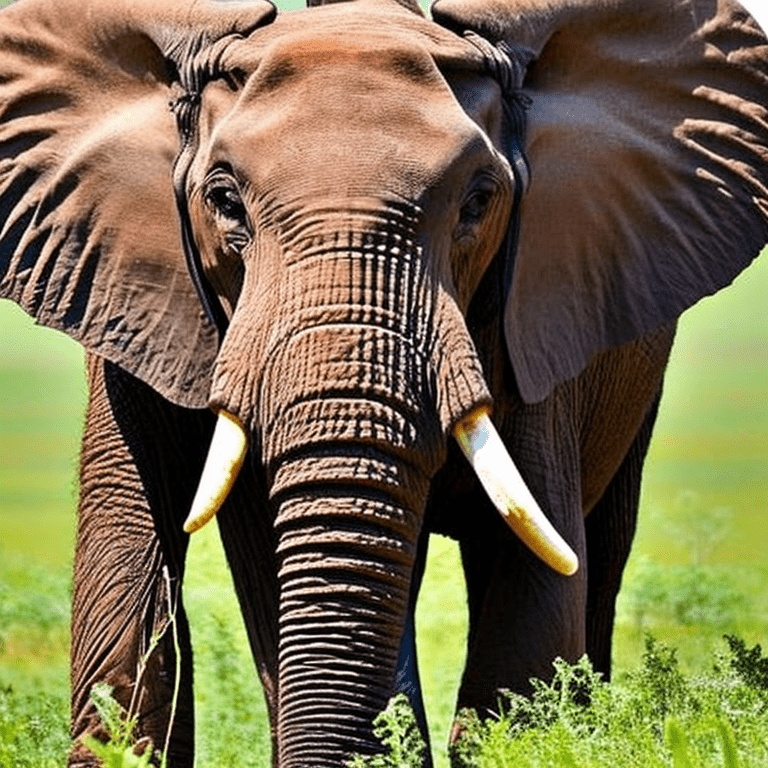Curious about exotic cuisines? Explore the intriguing realm of culinary experiences with an in-depth look at what does elephant meat taste like. Uncover unique flavors in this insightful blog post.
Ever wondered what elephant meat tastes like? Well, youre not alone! Many people are intrigued by the idea of trying unique dishes from around the world. Lets dive into the fascinating world of culinary exploration and uncover the flavors of elephant meat.
In some cultures, elephant meat is considered a delicacy and has been consumed for centuries. The taste of elephant meat has been described as rich, gamey, and similar to beef or pork. However, due to ethical and conservation concerns, the consumption of elephant meat is highly controversial and, in many countries, illegal.
As we continue to learn about different culinary traditions, its essential to consider the impact of our food choices on the environment and wildlife. So, the next time youre thinking about trying a new dish, remember to approach it with an open mind and a thoughtful perspective.

What Does Elephant Meat Taste Like?
Culinary Delight or Controversial Cuisine?
Exploring the taste of elephant meat raises ethical questions and controversies in the culinary world. In some cultures, eating elephant meat is considered a delicacy and a symbol of luxury, while in others, it is condemned as unethical and unsustainable. The consumption of elephant meat is a complex issue that intertwines cultural practices, conservation efforts, and ethical considerations.
Flavor Profile and Cooking Recommendations
Regarding the flavor profile, elephant meat has been described as dense, with a gamey taste resembling beef but with a more exotic undertone. Due to its leanness, it is important to cook elephant meat carefully to prevent it from becoming tough and dry. Slow cooking methods such as braising or stewing are recommended to enhance the tenderness and flavor of the meat.
For those interested in exploring unique culinary experiences, understanding the taste of elephant meat offers a glimpse into diverse food cultures. However, it is crucial to consider the ethical implications of consuming such meats and the impact it may have on wildlife conservation efforts.
For more precision slicing options for your culinary adventures, check out the best meat slicers for 2024.

FAQs
What does elephant meat taste like?
Elephant meat has been described as dense and tough, with a flavor similar to pork but slightly gamier. Some people have compared it to beef or veal.
Is it legal to eat elephant meat?
No, it is illegal in most countries to eat elephant meat due to the endangered status of elephants and various local and international laws protecting them.
How is elephant meat typically prepared?
In regions where it is consumed, elephant meat is often cooked in stews, curries, or grilled over an open flame. It is important to note that consuming elephant meat is a controversial practice.
Are there any health risks associated with eating elephant meat?
Due to concerns about diseases and parasites that elephants may carry, there are potential health risks associated with consuming elephant meat. It is not recommended to eat elephant meat.
Are there any ethical concerns with eating elephant meat?
There are significant ethical concerns with eating elephant meat, primarily due to the conservation status of elephants and the illegal poaching activities that threaten their populations. Consuming elephant meat contributes to the demand for illegal wildlife products.
Wrap Up
In summary, understanding the flavor profile of elephant meat can be quite enlightening. Exploring reviews and firsthand experiences reveals that elephant meat is often described as gamey, tough, and slightly sweet. Despite historical consumption in some cultures, ethical considerations and conservation efforts emphasize the importance of preserving these majestic creatures for future generations.
Ultimately, the taste of elephant meat may vary depending on preparation methods and personal preferences. While it may be intriguing to some, it is essential to approach this topic with sensitivity and respect for wildlife conservation. As consumers become more conscious of their food choices, discussions around exotic meats like elephant serve as a reminder of the intersection between culinary curiosity and ethical considerations.
In conclusion, delving into the question of what elephant meat tastes like offers a glimpse into cultural practices and culinary diversity. As societal values evolve, it is crucial to weigh the historical context of consumption against contemporary conservation efforts. Exploring these complex dynamics fosters a deeper appreciation for wildlife and responsible food consumption practices.



